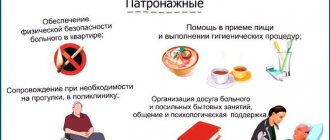Decree of the Government of the Russian Federation of November 17, 2010 N 927 (as amended on February 10, 2018) “On certain issues of guardianship and trusteeship in relation to adult incompetent or not fully capable citizens” (together with the “Rules for the selection, registration and training of citizens who have expressed a desire to become guardians or trustees of adult incapacitated or not fully capable citizens"
See also “Guidelines for compliance with mandatory requirements in the field of guardianship and trusteeship in relation to adult incapacitated or partially incompetent citizens” (approved by Rostrud)
When are guardians and trustees needed?
Russian legislation provides that every citizen has two important legal characteristics:
- Legal capacity is the ability to have rights and obligations provided for by law.
- Legal capacity is the ability to exercise these rights, create responsibilities, and act independently in legal relations.
Legal capacity is established for each person; it arises at birth and disappears at death. But with legal capacity everything is completely different:
- It appears in full only from a certain age (adulthood);
- It may be limited on the grounds established by law. In some cases, a person may lose it completely. Those for whom the deprivation procedure is applied are called incompetent.
If a person has limited legal capacity or is completely deprived of it, he cannot make some or all transactions, enter into legal relations, or apply to government agencies and the court. Specially appointed representatives - trustees and guardians - act on his behalf.
The grounds and procedure for establishing guardianship and trusteeship are regulated by law.
In particular, it is provided that in certain cases neither guardians nor trustees can be appointed. This applies to cases when wards are placed in medical or social institutions intended for orphans, mentally ill, etc. In this case, guardianship or guardianship of children and adults is carried out by the administration of such institutions, and the organization itself carries out the functions of representing the interests of wards. Her powers will be the same as those of the appointed guardians or trustees.
Prompt assistance in obtaining guardianship and trusteeship
Sign up for a consultation with a specialist
+7
Customer Reviews
Review by Marcheilo I.V. On September 24, 2021, I turned to Konstantin Vasilievich for legal advice. I would like to express my gratitude for your sensitive, attentive attitude and qualified assistance. I received a comprehensive answer to all my questions. They helped a lot. Thank you! Sincerely, Marcheilo Irina Vladimirovna.
Gratitude to Pavlyuchenko I express my gratitude to Alexander Viktorovich Pavlyuchenko for the qualified management of my case, competent advice and informed decisions, which led to compensation for all claimed losses.
Best regards, Evgeny Nevinchany
Gratitude from Loseva S.I. I express my deep gratitude to Sergei Vyacheslavovich (lawyer of the firm) for his very clear, accessible help in solving my problem (protecting rights as a consumer). This is the second time I have contacted you to solve my problems. Always everything......and in full.
With gratitude, Svetlana Ivanovna Loseva, 02/15/2019
Gratitude from Matvey Fomin I, Matvey Alekseevich Fomin, am grateful to Vasily Anatolyevich Kavalyauskas for the timely legal advice and prompt assistance in resolving my issue. Calm and decisive. Thank you.
Fomin M.A.
Gratitude from Alexey Shubakov Many thanks to Sergei Vyacheslavovich for the complete and detailed consultation. I have not encountered legal assistance before, but now, with a very favorable impression, I will definitely apply again in the future.
Shubakov Alexey 10/17/2018
Gratitude from Antonov Arkady I, Antonov Arkady Shanobich, turned to the Legal Agency of St. Petersburg for help due to the fact that when concluding an agreement for spinal treatment with Medstar, I was actually deceived in the cost of treatment and more. During the process of drawing up a treatment contract with me, no one explained to me that the treatment would be carried out using credit funds; the amount of treatment was constantly changing. My requests to be given longer time to familiarize myself with the procedures and consultations at their price list were refused. That is, there was actually pressure on the client. At home, when I carefully read the entire document, I realized that I had actually been deceived about money and treatment time. On October 30, 2018, I applied for legal assistance from the Legal Agency of St. Petersburg regarding the termination of the contract for treatment at Medstar and the termination of the loan agreement from Alfa-Bank. My case was handled by Denis Yurievich Stepanov, all issues were resolved very quickly and I was informed about all situations. I would like to thank Stepanov D.Yu. and all lawyers who work in this agency.
November 21, 2021
Review by Minina M.V. I would like to express my deep gratitude to Yuri Vladimirovich Sukhovarov for his competent advice and qualified assistance on my issue.
With gratitude, Minina Margarita Vladimirovna.
Gratitude from N.S. Khokhlov I am Khokhlov N.S. I express special gratitude to lawyer A.V. Pavlyuchenko who defended my consumer protection rights. I was pleasantly surprised by his professionalism, where he discovered the false address of my defendant registered in the Unified State Register of Legal Entities, and also defended me, as I believe, from the unreasonable decisions of the trial judge. If I need legal assistance in the future, I will only turn to A.V. Pavlyuchenko.
N.S. Khokhlov December 12, 2017
Gratitude from Marina Kuleshova I express my deep gratitude to Alexander Viktorovich Pavlyuchenko for his competent legal work and professionalism, as well as to his assistant Elena Vladimirovna for the qualified assistance provided. I wish you prosperity and achievement of professional heights.
Sincerely, Marina Kuleshova. 08/15/2018
Gratitude from Volkova N.E. I express my gratitude to Vasily Anatolyevich for his professional and competent assistance in resolving the issue of protecting my consumer rights. As a result, I received decent compensation from. Thank you!
Volkova N.E. November 30, 2018
Difference between guardianship and guardianship
Although guardians and conservators act as liaisons between incapacitated or partially disabled people and others, their tasks and responsibilities vary significantly. Basically, guardianship differs from trusteeship in the following ways:
- Guardianship is established over children who are under 14 years of age, as well as over citizens whom the court has duly declared incompetent. In this case, the ward himself does not make any transactions, does not personally enter into any legal relations - the guardian always and everywhere acts on his behalf;
- Guardianship is established over children who have already reached the age of fourteen, but have not yet become adults. Guardians are also appointed to persons whose legal capacity is limited. However, the ward himself acts in all legal relations - the trustee only gives (or does not give) his consent to the exercise of rights and the acquisition of responsibilities by the ward.
- A guardian is appointed by force, but a trustee can be appointed at the request of the person himself. In particular, for disabled or elderly people who need help, it is possible to use a form of guardianship such as patronage.
Principles of guardianship and trusteeship
When exercising their powers, guardians and trustees are guided by the following principles:
- Voluntariness. No one can be appointed as a guardian or trustee against his or her will, and the person appointed has the right to refuse to perform his or her functions at any time;
- Controllability. The activity of the guardianship and trusteeship authorities consists precisely in supervising how guardians and trustees exercise their powers. In particular, the trustee and guardian do not have the right to carry out or give consent to transactions as a result of which the property of the ward is reduced (sale, donation, long-term lease, etc.), without the consent of the guardianship authority. There are also legal restrictions on transactions between a guardian or trustee and a ward: only those types of transactions are allowed, as a result of which the property of the guardian is transferred free of charge to the ward as a gift or use;
- Maximum protection of the rights and interests of those on whose behalf they act, exercising their powers;
- State support for trustees and guardians. In particular, in a number of cases the state pays benefits for child custody, etc.
How to obtain patronage over a legally capable citizen?
In order to obtain patronage over a capable citizen, the plaintiff must write an application to the guardianship and trusteeship authorities. The applicant has the right to choose his own assistant.
If a person does not have relatives or friends who could provide care for him, the guardianship authorities select an assistant for him. This must be done within a month from the date of application.
Along with the application, the person in need of patronage provides the following documents:
- copy of passport;
- an extract from the house register;
- compulsory health insurance policy;
- pension certificate (if any);
- medical certificate of disability or serious illness.
The assistant must also collect a package of documents:
- passport;
- a certificate from the place of employment indicating the position, salary, availability, and number of business trips;
- medical examination;
- written consent to become a patronage assistant.
When choosing a candidate, attention is paid to such qualities as adulthood, legal capacity, and responsibility. A guardianship employee cannot become a foster care assistant.
The assistant's responsibilities include:
- providing for the everyday needs of the patron;
- paying his bills;
- property protection;
- strict reporting to the ward and guardianship authorities.
If the guardianship authorities make a positive decision in favor of patronage, an agreement is concluded with the assistant confirming his new powers. Any property transactions are concluded only with the consent of the patron, and the guardianship authorities are notified.
Expert opinion
Maria Lokshina
Family law expert since 2010
Patronage can be free or paid. Payments are made either from the income of the ward or from the state budget.
Guardianship and trusteeship of children
Quite often, guardianship and trusteeship of minors is established. This usually happens when young wards, for some reason, find themselves without parental help: parents have died, are deprived of their rights or have their rights limited, due to illness are unable to fully care for their children, etc.
As already mentioned, guardianship is established over children under 14 years of age, and the powers of the guardian include the complete replacement of his wards in all legal relations. After 14 years and before reaching 18, guardianship is established over children, in which permission is only given to carry out transactions, and the ward himself makes them (and, accordingly, bears responsibility).
A set of measures for minors is introduced within a month after the relevant organization (guardianship authority) establishes that the child has been left without parental care. If a guardian or trustee has not been found within the specified time, the child is transferred to an educational or medical institution of the appropriate profile.
In relation to guardianship and trusteeship of children, it is necessary to mention such an option as temporary guardianship or guardianship. If parents are unable to fulfill their responsibilities for some time for good reasons, they can apply to the guardianship authority with a request to appoint a temporary guardian or trustee. The use of this form of guardianship or guardianship over children is allowed for a period of up to 3 months, in exceptional cases - up to six months.
Temporary guardianship is also used in cases where a child is temporarily placed in one of the specialized (in particular, medical) institutions where the permanent guardian cannot be present. In this case, the tasks are performed by the administration of the institution. At the same time, the powers of the permanent guardian do not cease, and after the return of the child, he continues to exercise guardianship responsibilities.
How to adopt a child into a family?
Those who decide to foster a child first need to visit the guardianship and trusteeship authorities. The specialists of this institution will tell you where to start and how to proceed. It is advisable to take preparatory courses for guardians, upon completion of which a special certificate is issued.
If the future guardian does not yet know what kind of child he wants to take into his family, he needs to visit the orphanage, personally meet the children of the institution, communicate, and learn more about them.
You need to collect a package of documents:
- passport or pension certificate - original, copy;
- autobiography of the future guardian;
- marriage and birth certificates of all children living in the family;
- documents for an apartment or any other living space;
- medical certificate of health;
- characteristics and certificate from the place of work indicating the position, salary;
- certificate of no criminal record;
- written consent of all family members for the residence of the ward.
After this, the candidate must write an application to the guardianship authorities, and the collected documents are also submitted there. Then the authorized bodies check the applicant's living conditions. Based on the results of the inspection, an inspection report is drawn up, which indicates whether the housing is suitable for the person under care.
Next, employees of the guardianship authorities must, within 10 days, decide whether to authorize or prohibit guardianship of the minor for this candidate.
If a positive decision is made in favor of the guardian, he is issued a document confirming his new status. In the case when a decision is made to refuse, the guardianship authorities are obliged to clarify the reason why the person could not become a guardian.
Dear readers! To solve your problem right now, get a free consultation
— contact the on-duty lawyer in the online chat on the right or call:
+7
— Moscow and region.
+7
— St. Petersburg and region.
8
- Other regions of the Russian Federation
You will not need to waste your time and nerves
- an experienced lawyer will take care of solving all your problems!
Guardianship of incapacitated adults
In addition to guardianship over children, it is also possible to establish guardianship over adults. The conditions for this are very simple: the ward must be deprived of legal capacity by a court order. This procedure is carried out if a person suffers from a mental illness and cannot be responsible for his actions.
The powers and tasks of a guardian with an adult ward will be as follows:
- act on behalf of the ward in all transactions;
- contact medical institutions in order to provide assistance to the ward;
- demand payment of benefits, pensions and other payments due to the ward;
- apply to the court and other government bodies in order to protect the rights of the ward;
- protect the property of the ward;
- prevent a citizen from causing harm to himself, others or their property;
- if the patient’s mental condition has improved, and this is confirmed by the medical organization, apply for the return of partial or full legal capacity.
Guardianship of adults
Like guardianship, guardianship can also be established over adults. Its legal features are that it applies to wards who are not deprived, but limited in their legal capacity. The tasks and functions of a guardian appointed to an adult ward are similar to those of a guardian over a teenager, but the conditions of the appointment will be completely different:
- a guardian for a teenager is appointed in any case, solely due to age;
- For an adult, a guardian is appointed only on the basis of a court decision to limit legal capacity.
Patronage
Finally, there is another additional form of assistance to citizens, such as patronage. Its features are as follows: an adult and capable citizen, who for health reasons is not able to defend his rights or fulfill his duties, has the right to use the services of an assistant assigned to him by the guardianship authorities.
In this case, the appointment of an assistant is made with the mutual consent of both the citizen himself and the person who will provide patronage.
The legal features of this form of assistance as patronage are as follows:
- Unlike guardianship of the incapacitated, an assistant acts on behalf of a person based on a contract. The citizen to whom an assistant is assigned is not deprived of his legal capacity and, if necessary, has the right to act independently;
- The assistant can dispose of the ward’s property only with his consent and only within the limits established by the agreement concluded between them;
- An assistant is appointed only with the consent of the ward. In the case when patronage is used, the person under care has the right to refuse its help at any time.
These features largely link patronage to representation or service provision.
Court decisions
Money has disappeared from the card
The case of a refrigerator with a defect: a light bulb costing 53,964 rubles
The company avoided multimillion-dollar losses
How to defend your rights to debt collectors? A case about the successful completion of bankruptcy proceedings.
How to return an illegally sold apartment
Unintentional rudeness: Trying to break up a fight almost cost a hockey club coach his career
Termination of guardianship and trusteeship
The grounds for termination of guardianship and trusteeship are specified in the law. These include:
- The ward has reached the required age: 14 years for guardianship, 18 for guardianship;
- Emancipation or marriage before age 18.
- Recovery of a person deprived of legal capacity due to mental illness. In this case, a conclusion from psychiatrists and a court decision are required;
- Removal by the court of the restriction of legal capacity at the request of the trustee or guardianship authority.
- Violation of the conditions under which guardianship and trusteeship of minors or adults were established;
- Death of the ward himself, or of a guardian or trustee.
This list of grounds for termination of guardianship and trusteeship is exhaustive.
After the powers of a guardian or trustee are terminated, he is obliged to report on the condition and management of the ward’s property.










